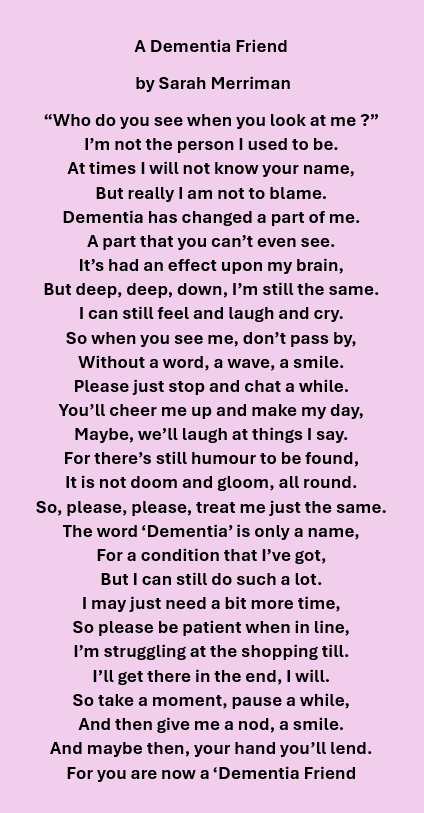
What comes to mind when you hear the word poetry?
I would suggest that whatever you first think when you hear the word ‘poetry’ is based on how you were introduced to poems. I read poems, as a child, that were simple and fun to read and recite. However, when it came to high school English, poetry took on a whole new dimension, learning the technical aspects of poetry such as meter (iambic tetrameter, pentameter, or hexameter); or reading and analyzing some of the great poems of history.

Thankfully, I had a captivating English teacher who had the ability to bring Shakespeare alive (figuratively) as he read any play. I did find that when I read the words myself, the experience wasn’t anywhere near as interesting. I needed a poetry-enhancing-agent to keep my interest. In university, I was introduced to the likes of E.E. Cummings and Edgar Allan Poe, and although my instructor wasn’t quite as animated as my high school English teacher had been, he was thorough and I found I was gleaning far more out of poetry now that I was a tad more mature.
Recently, I was gifted a book of poetry, by poet Margo Robinson, that again piqued my interest in poetry. I began reading, or should I say savouring her words.
Around the same time, I had been speaking with Sarah Merriman for an episode of the Island Treasures podcast. Sarah shared about the poetry sessions she provides for people living with dementia. This deepened my interest and I started to explore the benefits of poetry on dementia and on caregiving. It came as no surprise that poetry can lower stress and anxiety as well as ward off depression. I know that I feel better when I spend time reading poetry. It can even improve memory!
Poetry Sessions
Sarah told me she had always loved to write, and I was intrigued. Sarah had been caregiving for her grandma who she called “Nana”, and after her Nana passed away, her passion for writing was reignited. She began writing inspirational poetry. Here’s the first poem Sarah wrote after her Nana died:

At the poetry sessions, Sarah reads her poems to the participants – folks who are living with dementia. They then discuss the poems before writing their own poetry. The group then reads their compositions to the others in the sessions. Sarah describes this as being a lot of fun. You can hear Sarah speak about her poetry sessions together with her caregiving story on the Island Treasures podcast episode “Roadblocks and Signposts for Caregivers“.
Fractals in Nature

I don’t pretend to know a lot about poetry, but I do remember some of the lessons I learned along the way, such as Iambic pentameter being likened to the human heart beat with its pattern of stress/unstress paired together for 10 syllables. These beats remind me of the stress-reducing impact of fractals in nature, which I learned about from Zander Keig. Zander described fractals with their never-ending, repetitive patterns so engagingly well when he was a guest on the Island Treasures podcast in the episode called “No Time for Burnout”.
Expressive Writing
Poetry offers a creative, expressive, and cathartic outlet—but journaling can also provide a powerful release.
Caregivers are often encouraged to keep a journal. They are also encouraged to document changes in their loved one’s behaviour, symptoms, medication, appetite, etc. This is separate from journaling as a safe place to write expressively. Keeping a journal can be a great coping mechanism, as it provides a place to release your emotions to the page. If keeping a journal is foreign to you, I’d like to introduce you to Lori Ramos Lemasters’ book, “You’re a Caregiver, Not a Saint: Yeah, Write!“. Lori shares her caregiving story in the first half of the book, and the second half is a workbook with prompts and techniques which provide a healthy and affordable way to process your emotions and work through caregiving challenges. To hear from Lori directly, tune into the Island Treasures podcast episode called “Therapeutic Journaling through Caregiving“.

Pick up a Pen
Whether you are an established poet, an occasional writer of poetry, an admirer of nature’s beauty, or an expressive and reflective journal writer, there is significant value in taking a few moments to document your thoughts and feelings. Engaging in expressive writing not only serves as a productive outlet but may assist you in navigating the challenges you face as a caregiver. Are you ready to pick up a pen and start lowering your stress?
